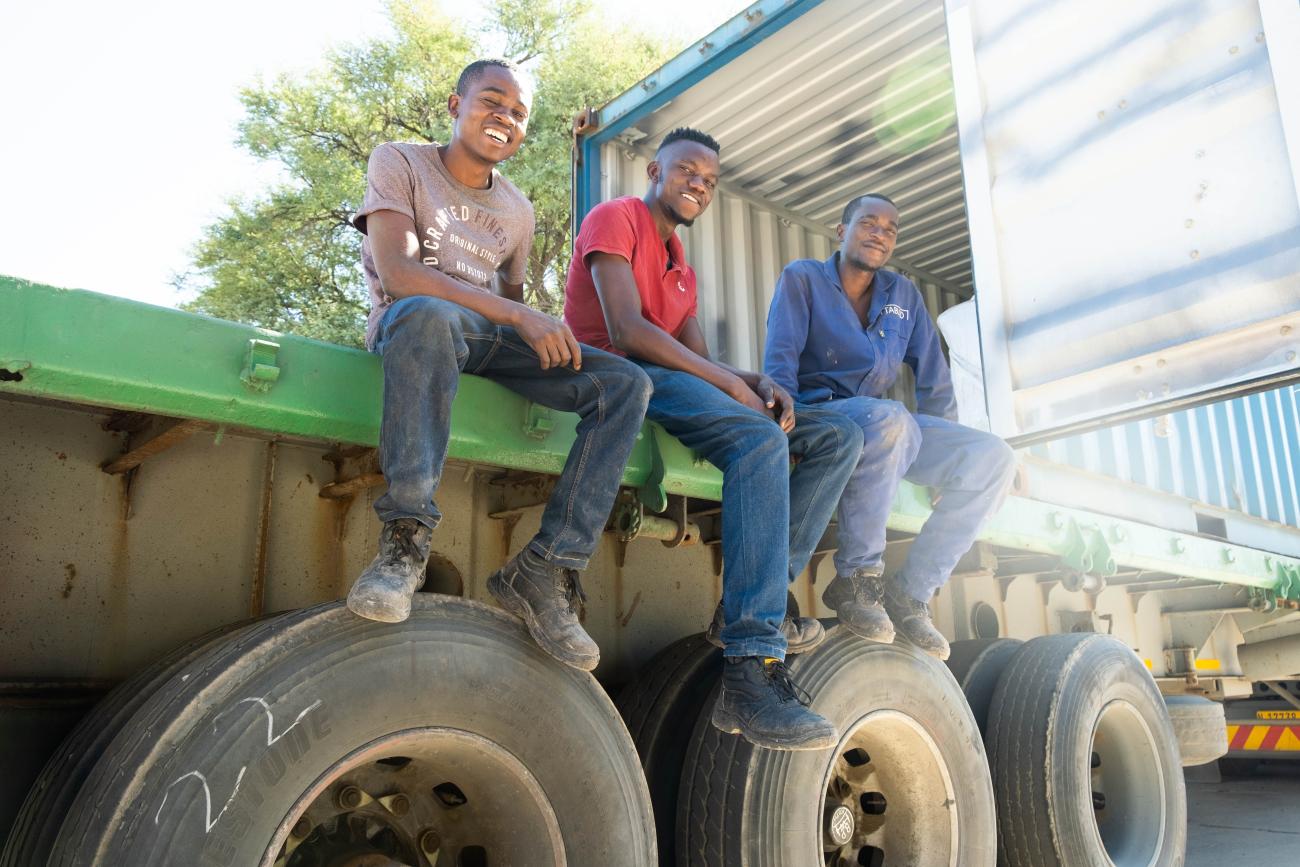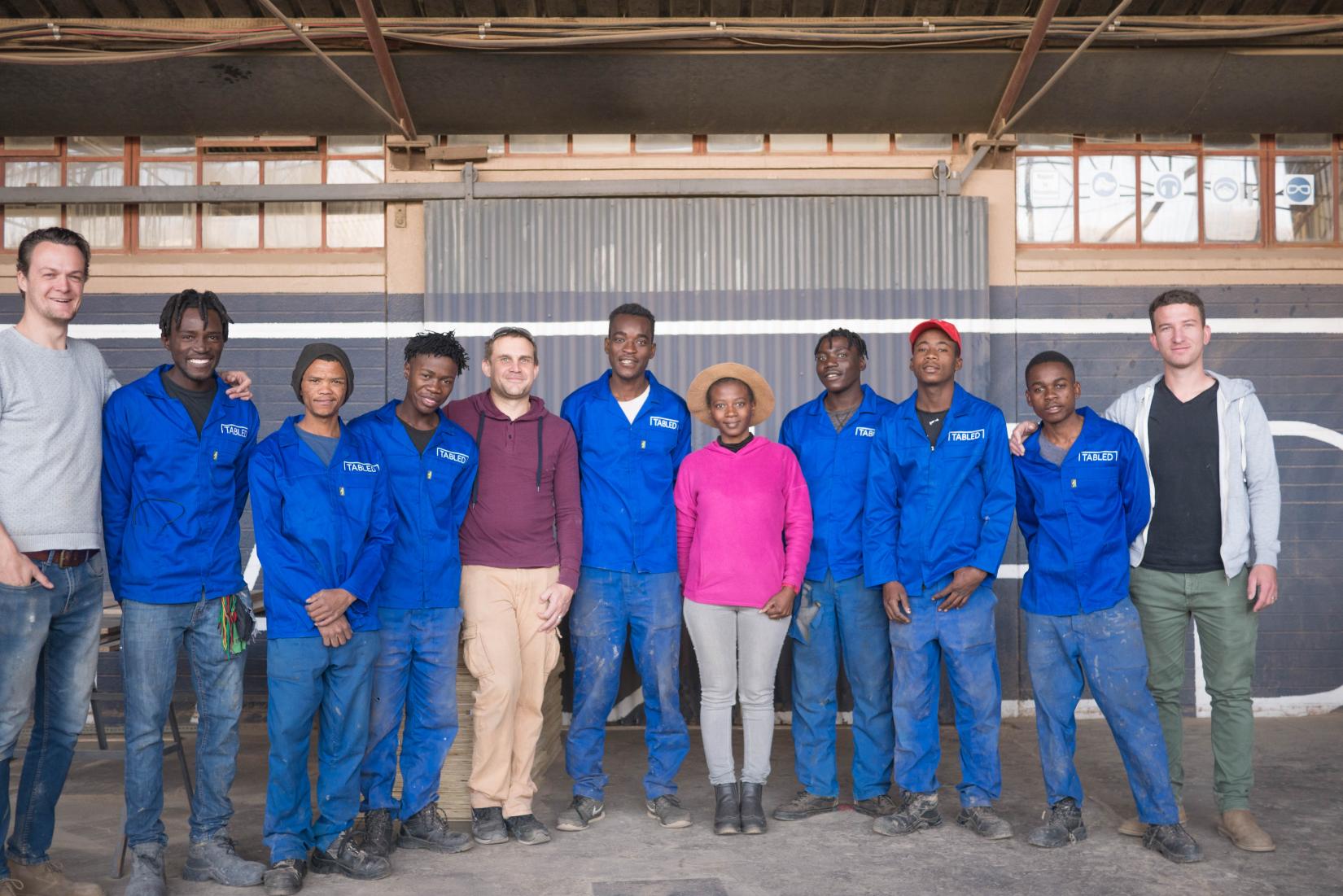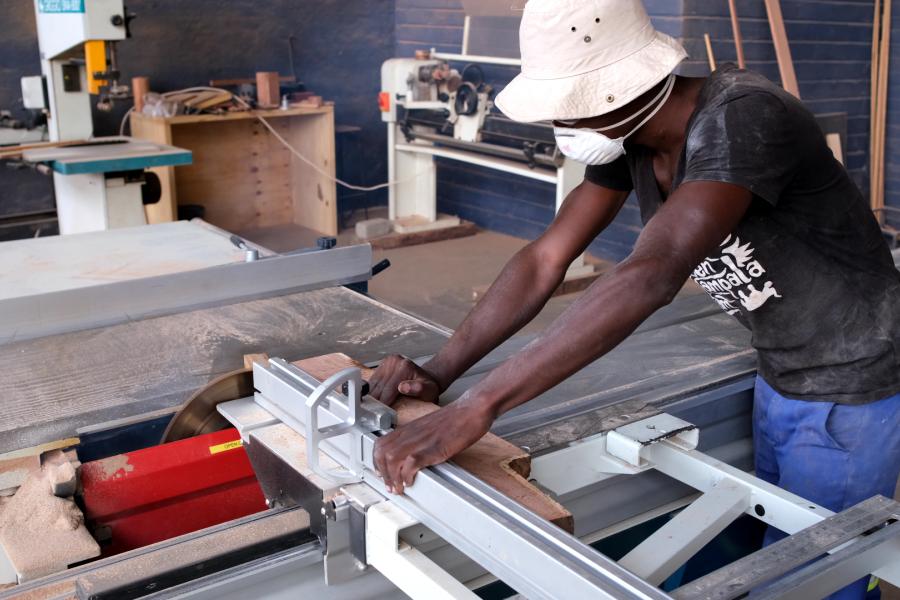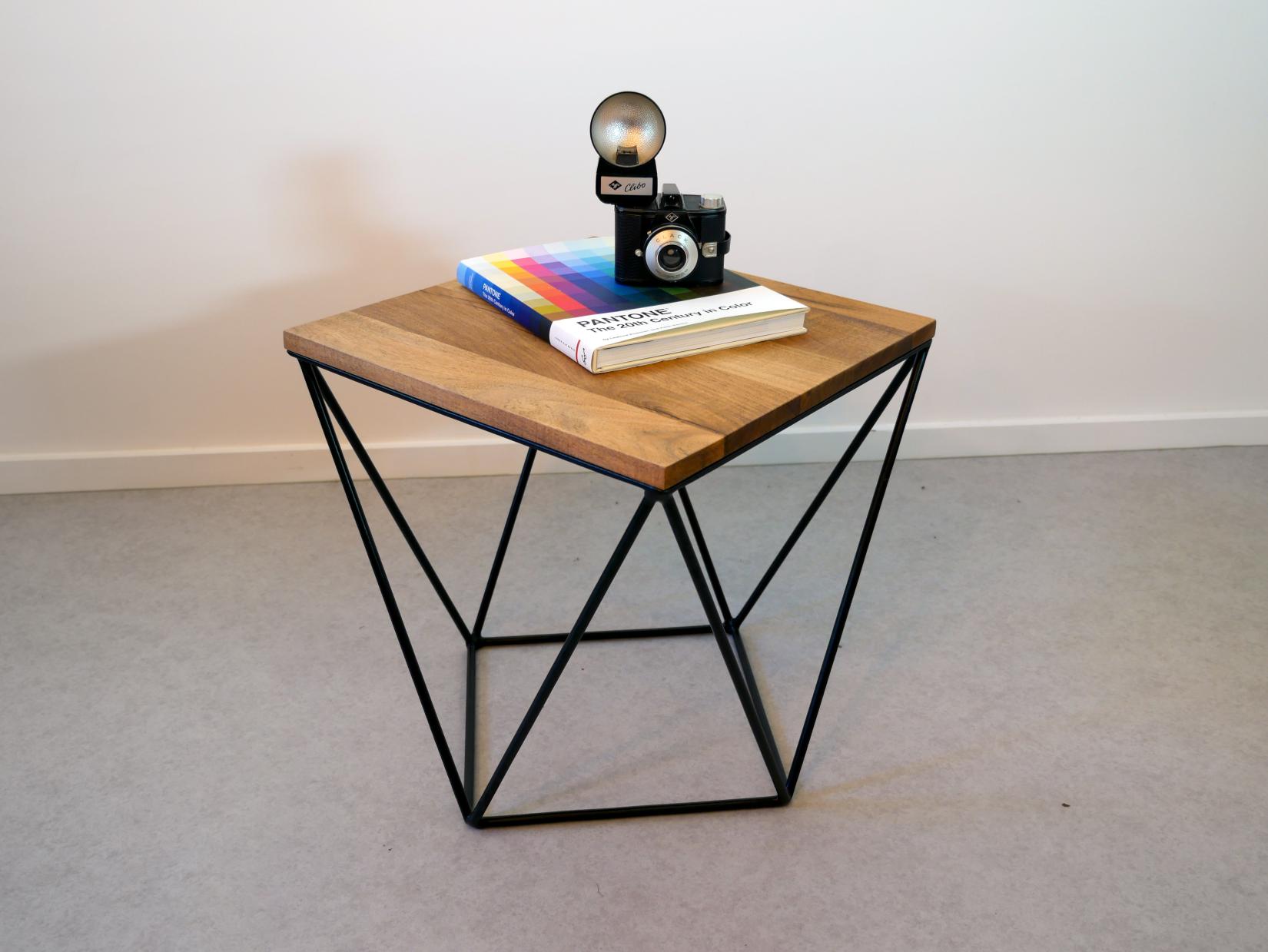Building a Sustainable Namibia, One Table at a Time

Since its establishment in 2017, Tabled Namibia is reimagining how we think about furniture in Namibia.
Starting from meager means, Tabled Namibia has become a respected brand throughout Namibia and abroad. From the way they hire and train their employees to the materials they use; Tabled Namibia is building a more sustainable future by utilizing and leveraging resources within our borders. Their commitment to teaching, training, and preparing apprentices for a rewarding career in this growing industry is the key to what is arguably Tabled Namibia’s greatest asset – its employees.
Building high-quality sustainable furniture starts with having a first-rate team and, just like furniture, people need to be supported from the ground up. Tabled employs several young adults from the Hope Village Orphanage in Katutura and provides them professional guidance as they begin their careers in carpentry. Informal education of this kind addresses educational development in and around disadvantaged sectors of Namibia, where techniques, skills, and hands-on training can provide a complete learning experience.
The owners at Tabled Namibia value the use of locally sourced materials to improve education, reduce inequality, and spur economic growth with obvious sustainable development benefits. Carpentry trades also offer room for career advancement and excellent wages in Namibia.
Today, about twelve (12) young Namibians are employed and working in their 1000 m² workshop, producing custom-made furniture for homes, lodges, offices, and everything in-between. The work of these young people is not only appreciated by clientele in Namibia, but also in the European market where Tabled has been exporting products since 2019.
UNIC Windhoek spoke to one of the co-owners of Tabled Namibia, Roel Rutgers, about their flourishing business in this edited Q&A:

Roel, thank you for joining us. Could you tell us how the business idea for Tabled Namibia came about?
I started out making furniture for our home and occasionally for people on request. After some time, my wife, Stephanie, suggested the involvement of young adults who lived at the Hope Village Orphanage. She voluntarily supported the orphanage through her own Netherland-based foundation and thought it would be a good idea for them to learn carpentry and possibly choose it as their profession. In 2017, we started our carpentry training programme with some of the boys and due to their interest as well as the commitment shown towards the trade, we turned it into a social enterprise to manufacture furniture locally.
Why furniture?
Furniture is typically an expensive investment, and, in Namibia, furniture is often imported. Our products are custom-made, using hardwood available in Namibia. The entire focus of this work is to source locally available raw materials for furniture production.
How did you get funding for your business when you first started out?
The first few items we made were bought by people in Namibia who wanted to support local production. That provided the first prototypes and images for marketing material for the project. I then organized a fundraiser on Indiegogo to raise money, which in turn helped us rent our first warehouse and buy tools and machinery for production. It was by this time that Adriaan Van Wyk, who had been involved in furniture making for years, joined as a partner to setup the business together with me. He oversees operations in Namibia, while I support our export profile of Namibian products to Europe.

Where do you get your material?
We are addressing the alien invasive Mesquite (Prosopis juliflora) trees in Namibia. These trees are not part of the natural ecosystem in Namibia, as they are from South America and were introduced into Namibia in the 1950s to combat desertification. However, around 2010 it was discovered that these trees are growing extremely fast, using too much underground water, outperforming the local species, and inevitably drying out the land. The Namibian Government decided to clear these trees in Namibia to save water and create employment. In support of the government’s directive, Tabled Namibia uses the Mesquite tree to make excellent products while also providing a solution to this environmental problem.
Who are your designers?
We have employed a Namibian designer, and I also provide design ideas. This is to increase sales, reach the wider market and compete internationally with similar imported goods.
What would you consider as the biggest success of your business in the last four years?
I think one of our biggest successes is exporting Namibian-made products to Europe and selling them abroad. The export grows day-by-day, and we are proud of what we have accomplished. It shows that Namibia has the talent and resources to compete internationally. We send a container of Namibian-made products to Europe every three months and our products are also for sale in shops in Windhoek, like NICTUS, the largest independent furniture retailer in Namibia.
Has your business been affected by the pandemic?
We could not produce and sell for a while during the first lockdown, but, of course, you still need to pay your employees, rent and other monthly costs. Our landlord was very supportive and agreed on temporarily lowering rent to some time; which helped us in keeping supporting our employees. It was a difficult phase, but we are happy that after some months we could work again.

What are some of your biggest obstacles?
The biggest obstacle is to start and devote time to the business. The most important factor is to build and sustain trust in your business relationships and to deliver goods on demand.
A misconception however remains that imported goods are better than those produced locally. We try to change this perception by showing people that local products can be as good as imported ones – sometimes even better.
What are your ambitions for your business in the next 5 years?
We want to increase our market by exporting to South Africa and growing our European branch. In general, by infiltrating the export market we may secure more job opportunities in Namibia.
What do you think about the Buy Local Grow Namibia Campaign and supporting local businesses in general?
It is a good idea. Tabled Namibia is not an official member yet, merely because we are in the early business growth process. However, self-sustainability is key in entrepreneurial businesses in addition to securing a valuable product or service to build a Namibian brand identity.
You can find Tabled Namibia on their website: https://www.tabled-namibia.com/
“This feature is part of a UN Namibia series to highlight local goods or service providers in support of the Buy Local Grow Namibia campaign and who we believe are actively working toward the sustainable development goals (SDGs). The Buy Local, Grow Namibia campaign supports growth in the production and consumption of Namibian goods and services”
Written by









